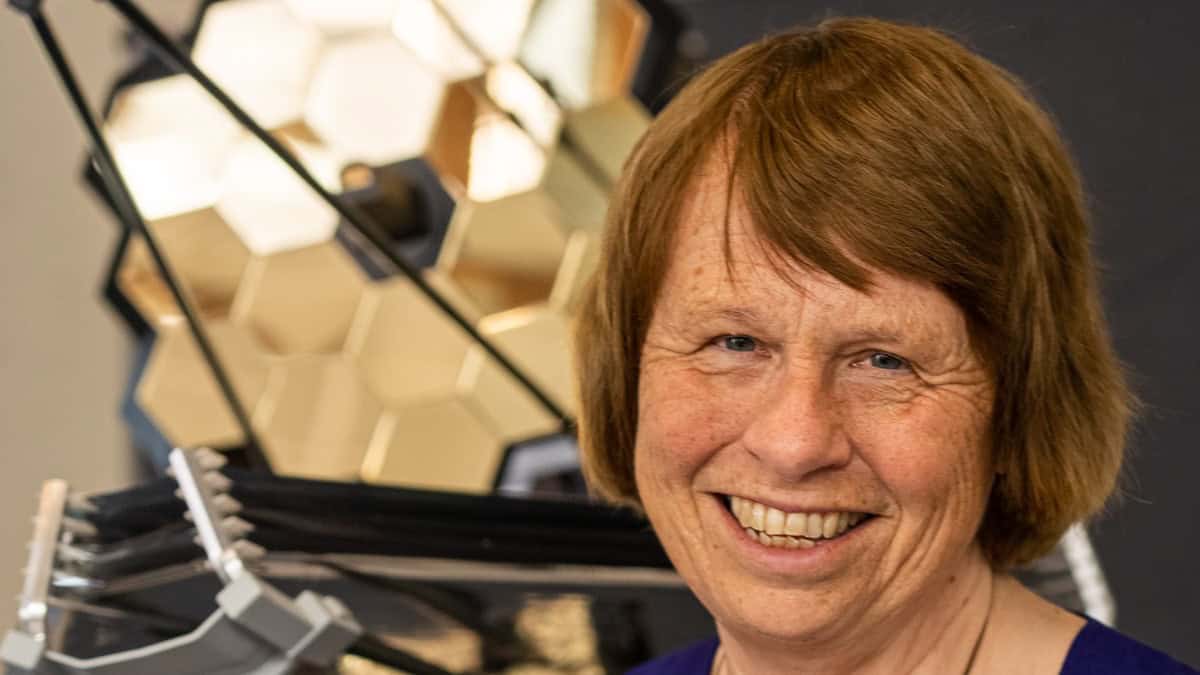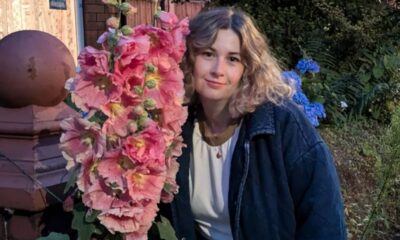Science
Ewine van Dishoeck Explores the Depths of Astrochemistry

Astrochemist Ewine van Dishoeck recently shared her insights into the field of astrochemistry in a comprehensive podcast interview. A professor emeritus of molecular astrophysics at Leiden Observatory in the Netherlands, van Dishoeck is renowned for her contributions to understanding the chemical processes that occur in space. In 2018, she received the prestigious Kavli Prize in Astrophysics for her significant research achievements.
During the interview, van Dishoeck expressed her enthusiasm for astrochemistry, highlighting how it intersects with various scientific disciplines, including astronomy, astrophysics, and theoretical chemistry. She emphasized the importance of laboratory experiments in complementing astronomical observations to unravel the complexities of chemical formation in the universe.
Unanswered Questions in Astrochemistry
Van Dishoeck addressed some of the key unanswered questions that drive her research. One of the most intriguing topics is the formation of complex molecules on tiny dust particles in interstellar space. Understanding this process is critical for piecing together the chemical history of the universe and the potential for life beyond Earth.
The conversation also touched on the advancements in our knowledge of exoplanets and protoplanetary discs. Van Dishoeck noted the growing excitement within the scientific community regarding the possibility of detecting signs of life on distant planets or moons. This burgeoning field of research is bolstered by the capabilities of groundbreaking telescopes, such as the Atacama Large Millimetre Array and the James Webb Space Telescope, both of which play pivotal roles in observing celestial phenomena.
Collaborative Efforts in Astronomy
Throughout her career, van Dishoeck has been actively involved in major astronomical projects. She discussed the challenges of fostering agreement within the astronomy community about the parameters of new observatories. These collaborative efforts are essential to ensure that the instruments developed meet the diverse needs of various research communities.
Looking forward, van Dishoeck shared her vision for the future of astrochemistry. She believes that upcoming observatories will significantly enhance our understanding of the universe, opening new avenues for exploration and discovery.
As the interview concluded, van Dishoeck issued a compelling call for the next generation of scientists to consider careers in astrochemistry. Her passion for the field and its potential for groundbreaking discoveries serves as an inspiration for aspiring researchers.
The podcast is sponsored by the Kavli Prize, which honors scientists for transformative research breakthroughs in astrophysics, nanoscience, and neuroscience. Each of these fields receives a $1 million award. The Kavli Prize is a collaboration among The Norwegian Academy of Science and Letters, the Norwegian Ministry of Education and Research, and The Kavli Foundation in the USA.
The prize follows a biennial cycle, with nominations open from July 1 to October 1 in odd-numbered years. The next Kavli Prize announcement is scheduled for June 2026. For further information, visit kavliprize.org.
-

 Entertainment2 weeks ago
Entertainment2 weeks agoAndrew Pierce Confirms Departure from ITV’s Good Morning Britain
-

 Health4 months ago
Health4 months agoNeurologist Warns Excessive Use of Supplements Can Harm Brain
-

 Health4 months ago
Health4 months agoFiona Phillips’ Husband Shares Heartfelt Update on Her Alzheimer’s Journey
-

 Science2 months ago
Science2 months agoBrian Cox Addresses Claims of Alien Probe in 3I/ATLAS Discovery
-

 Science2 months ago
Science2 months agoNASA Investigates Unusual Comet 3I/ATLAS; New Findings Emerge
-

 Entertainment1 week ago
Entertainment1 week agoGogglebox Star Helena Worthington Announces Break After Loss
-

 Entertainment1 month ago
Entertainment1 month agoTess Daly Honoured with MBE, Announces Departure from Strictly
-

 Science2 months ago
Science2 months agoScientists Examine 3I/ATLAS: Alien Artifact or Cosmic Oddity?
-

 Entertainment3 months ago
Entertainment3 months agoLewis Cope Addresses Accusations of Dance Training Advantage
-

 Entertainment5 months ago
Entertainment5 months agoKerry Katona Discusses Future Baby Plans and Brian McFadden’s Wedding
-

 Science2 months ago
Science2 months agoNASA Investigates Speedy Object 3I/ATLAS, Sparking Speculation
-

 Entertainment5 months ago
Entertainment5 months agoEmmerdale Faces Tension as Dylan and April’s Lives Hang in the Balance









